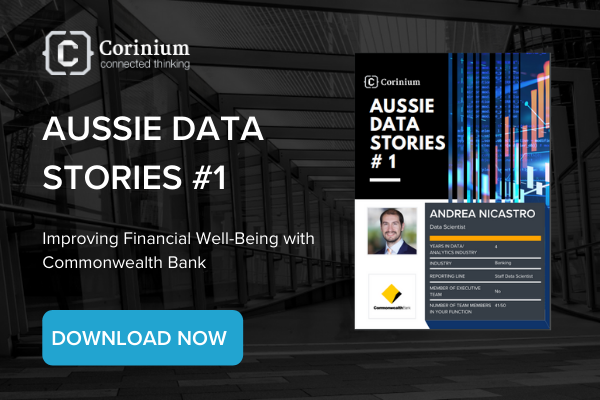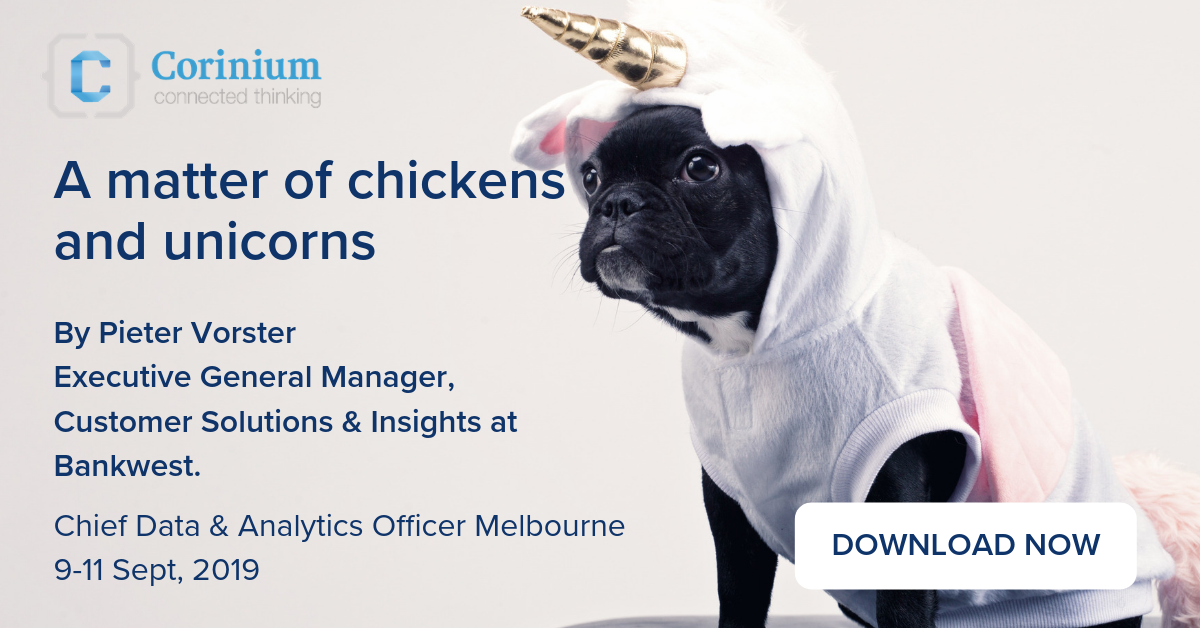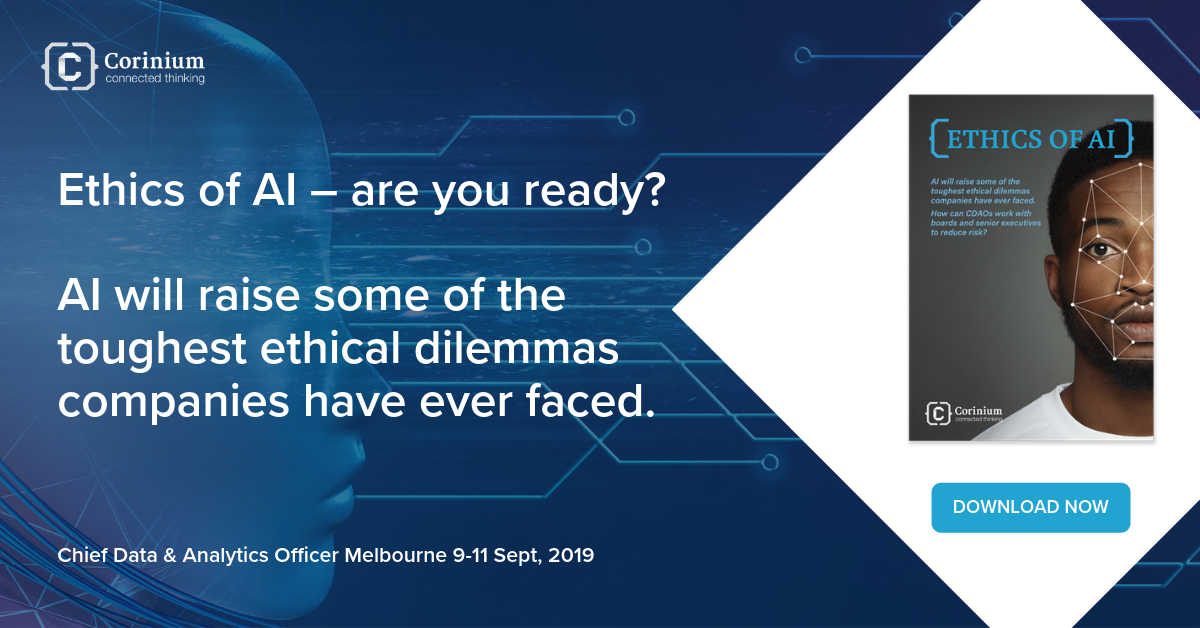Ahead of the first ever Chief Data & Analytics Officer (CDAO) Brisbane, we caught up with Tim Freestone, Head of Data Analytics at HotelsCombined to discuss Tim's analytics vision, the most significant skills gap seen in prospective data analysts as well as uncovering what makes the perfect data candidate and much much more!
1. First of all, what is your data & analytics ‘vision’, what are the key outcomes you are hoping to achieve and by when?
The last three years has shown me how incredibly time consuming and difficult it is to hire good data people, even for me with domain expertise. In such a fast-evolving domain, it’s very hard for internal and external recruiters to differentiate good and bad analysts. My main vision right now is to help companies efficiently screen analytics candidates. I’m starting a business which will offer online tests covering off the core skills in data analytics, such as data wrangling, data interpretation, R, Python, SQL and more. I’m in the research stages right now talking to potential customers and users. I’m expecting to have an MVP in February 2019.
2. You’ve interviewed upwards of 100 data analysts, could you explain what you have found the typical qualifications and capabilities, what they most often lack, and what have you found the most significant skills gaps to be?
Analysts come from a very wide variety of academic backgrounds and from a variety of different existing analytical positions. In terms of academic backgrounds, analysts typically come from, unsurprisingly, more analytical fields like engineering, science, stats and the more quantitative majors of business degrees (more from economics and finance, than management for example). It’s reasonably rare to get people from the arts or more creative disciplines.
I should emphasise here that while almost all candidates have a tertiary qualification, I personally don’t place any weight at all in this, and would happily accept candidates who’ve carved out a career themselves straight from high school, or via TAFE etc. We place 0 weight on academic performance and do not cover it off at all in the recruitment process.
For our last recruitment round in trying to hire an analyst for our product team, of the 40 short listed candidates, there were 26 unique titles. A good tip here for HR would be that you can’t filter anybody out based on title alone as there is so much variety for what companies refer to a data analyst role as.
In terms of capabilities and gaps, firstly, I believe data analytics - and to a greater extent data science - is still fairly nascent, so there’s not complete agreement yet over what an analyst should/should not be able to do. If you look at all the descriptions of data analysts, you’ll often see that a good analyst should have these skills:
-
Strong SQL data manipulation skills
-
Either Python or R experience
-
Strong analytical skills
-
Strong ability to verbally communicate their insights in an easy to understand manner
-
Strong visualisation skills
-
Strong commercial acumen
-
Good domain knowledge around the data
Bearing in the mind the above are just skills component, and doesn’t even cover off cultural fit, motivation etc., I firmly believe the above is a unicorn. These people don’t exist.
First, in terms of our own targeting, fundamentally we look for 4 non-negotiables:
-
Demonstrable experience of delivering insights that made some kind of impact
-
Basic ability to articulate what they’ve done/what they’ve found
-
Some basic statistical knowledge
-
Some basic SQL knowledge
The biggest skills gaps we’ve found over the last few years has been in basic statistics and in verbal communication skills. Around 65% of all candidates fail my first very simple stats question - ‘What is the difference between average and median?’. The other main barrier is that candidates simply can’t articulate what they did and what they found when discussing their experience. I feel they have actually had better experience than what they’re able to demonstrate, however, given a big part of being a good analyst is articulating succinctly what you’ve found to someone with less knowledge and data ability than yourself, we can’t relent on this skill.
3. What types of people become analysts and how can prospective employers best communicate with them?
See above and below. There’s a wide variety of backgrounds, and analysts generally prefer a more factual, logical, direct style of communication.
4. What would you describe as the perfect data candidate and how can employers design the right interview to uncover whether their talent prospect is the perfect fit and whether the company is right for them?
I’d first say beware of the unicorn as you won’t find them. I’d also say, it really depends on the context of the rest of your team, as this will dictate where the analyst’s role starts and stops. E.g. if your team was very technical and not commercial, finding an analyst with more business acumen would be a good idea, and they could be weaker on the technical front. Alternatively, if you had a team of highly commercial analysts with very little technical skills, you might get great returns adding a more technically gifted analyst to the mix.
Nonetheless, I believe the ‘ideal data analyst’ would:
-
Have a really inquisitive mind want to find out ‘why’
-
Have demonstrable experience in conducting analysis that led to some positive outcome
-
Strong data manipulations skills and experience in dealing with imperfect data.
-
Have some commercial/business acumen
-
Technical skills in databases (SQL) and some programming in either Python or R
This assumes you have the right role for this analyst. Finding a great candidate like this, and then assigning them reporting work wouldn’t work well.
5. What do analysts want from an employer and what appeals to them when it comes to a role?
This is a great question. I often see roles misadvertised/oversold, and it’s a pet hate of analysts to be told they’ll be doing ‘advanced analytics’, only to find they’re putting together reports or refreshing Tableau dashboards.
Here’s some things that most analysts would want:
-
The chance to upskill into new skills and technologies. This could come as part of subscriptions to MOOCs like Udemy, or DataCamp, or the chance to work on a project internally using a technology they’ve never used before.
-
Challenging and interesting pieces of analysis, especially any that allow them to hone their new found skills.
-
Unfettered access to data. Data to an analyst is like oxygen. They need to be trusted to use it to gain insights, so limiting the barriers you put up for them to access it will always appeal to them. If the analyst needs to ask special permission from your DBA to access certain tables in the warehouse, this would be one sign that the controls you have are too great.
-
Clear instructions and communication. I’d say on average analysts tend to be logical, analytical and rational - quite high on the ‘blue’ on the HDBI framework. Analysts would tend to therefore respond better by reporting to heads of analytics. It works less well when they report to more sales/marketing types, who tend to have a more ambiguous communication style.
-
Not micromanagement. Just to clarify the above, analysts want clear instructions on ‘what’ they need to do and ‘why’ - you don’t need to tell them the ‘how’.
-
The insights of their analysis actioned. If an analyst provides some insights to their boss showing the clear course of action is to do A, then their boss does B anyway without any clear explanation, that would be frustrating.
-
Data cleansing/wrangling, manual/repetitive tasks - e.g. month end tasks and reporting are not generally enjoyed by analysts. Every analyst realises that data wrangling is a fact of life, so wouldn’t expect no wrangling. However, if you expect them to spend 90% of their time cleaning data in Excel, they will not appreciate that.
6. With constant changes in the data landscape, how can you communicate this with HR to ensure they have a grasp on what you need and the difference between data roles?
Honestly, I personally take a very active role in the recruitment process. If working with HR, let them take care of the whole admin side of things (posting job ads, setting up interviews, sending/receiving tests etc.). Else, the rest of the responsibility should be yours (as the analytics leader). This includes CV reviews, technical screening interviews, marking tests and then final interviews. The single most important thing you could do is hire the right people, and so it’s critical that you do this yourself as the domain expert. Depending on how quickly you’re scaling and the size of your team, you may also get others in your team involved. It’d be a good upskill for some of your senior analysts to learn these skills.
7. What have the 5 key learnings/takeaways been for you?
-
The data scientist is a unicorn. See above for digression.
-
Don’t get distracted by the newest shiniest things. A few years ago this was Hadoop/’big data’ and ‘data lakes’. Then it was ‘data science’. Then it was ‘machine learning’. Now it’s ‘deep learning’. It’s very important to understand when to use these more advanced technologies, and when not to. There are certainly downsides to them in that they require much more highly skilled people to implement and use, and in the case of deep learning, the models may not actually be explainable.
-
In terms of recruitment of analytical people, it’s incredibly rare to get people with skills that straddle the spectrum of hard and soft - hold on to them for dear life, and probably earmark them for analytics management/leadership roles.
-
Companies would do well to understand that every company is on an analytics ‘journey’. If a company is right at the start of that journey, they should focus on getting the core things right - set up good data systems, get the reporting and dashboarding layer right, scale out a BI team etc. They can’t just go straight to ML. You have to walk before you can run, as they say.
-
Most companies suffer from a similar set of problems with regards to data analytics, no matter what their industry or product. It’s important to speak with people at other companies to see how they solved their problems, especially those companies that are a few years further down the ‘journey’ than yourself.
ABOUT:

Tim Freestone
Head of Data Analytics Development, HotelsCombined








